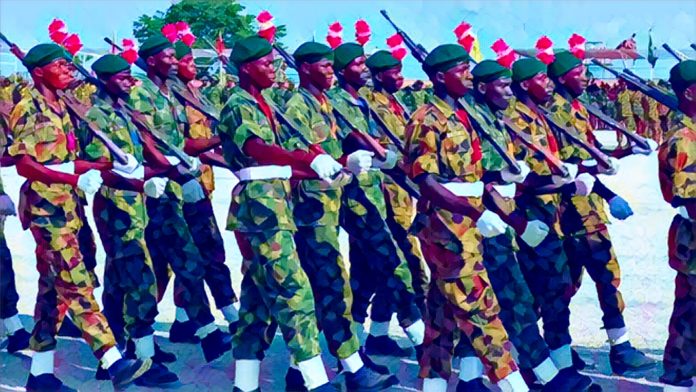KEY POINTS
- The Nigerian Army expresses concern over the minimum levels of enrollment from South East young adults in army service.
- General Ekeator urges both younger people and communities to modify their approach through increased recruitment applications.
- The community leaders emphasize the need for better initiatives that will enhance the attractiveness of military service for young people.
The Nigerian Army recognizes the declining number of South East residents joining military service thus demanding an approach modification to solve this recruitment problem.
The leader of the 2025 Army recruitment enlightenment team Brigadier-General Chima Ekeator pointed out how Kaduna State received more than 3,000 applicants during recruitment while Enugu State received only around 100 applicants.
Army decries poor application rates and need for action
Brigadier-General Chima Ekeator emphasized that South East youths particularly in Enugu must increase their applications to meet the available recruitment positions. The South East states receive defined quotas annually but inadequate applications create vacancies that cannot be filled because of insufficient applicants, Army decries.
The Army holds multiple important positions by South East personnel regardless of the misconception about Igbo youths enduring disproportionate casualties on front lines.
Youth involvement and military career benefits
Mr. Lloyd Ekweremadu as Enugu State’s Commissioner for Youths and Sports denounced declining enlistment numbers despite his administration’s ongoing attempts to boost recruitment. The review of recruitment advertising should analyze modern communication tactics for engaging young audiences according to his recommendation.
According to the Commissioner Governor Peter Mbah showed dedication to fulfilling recruitment goals for the state.
Local support for military service
Through a statement by Okechukwu Edeh who leads the Enugu State chapter of the Association of Local Governments of Nigeria (ALGON), the military received endorsement for its recruitment drive that revealed the need for military high command to respond to public concerns regarding enlistment attractiveness.
Traditional leaders together with community heads actively promoted military service by discussing its valuable advantages and the honorable nature of serving in the armed forces to young applicants.



